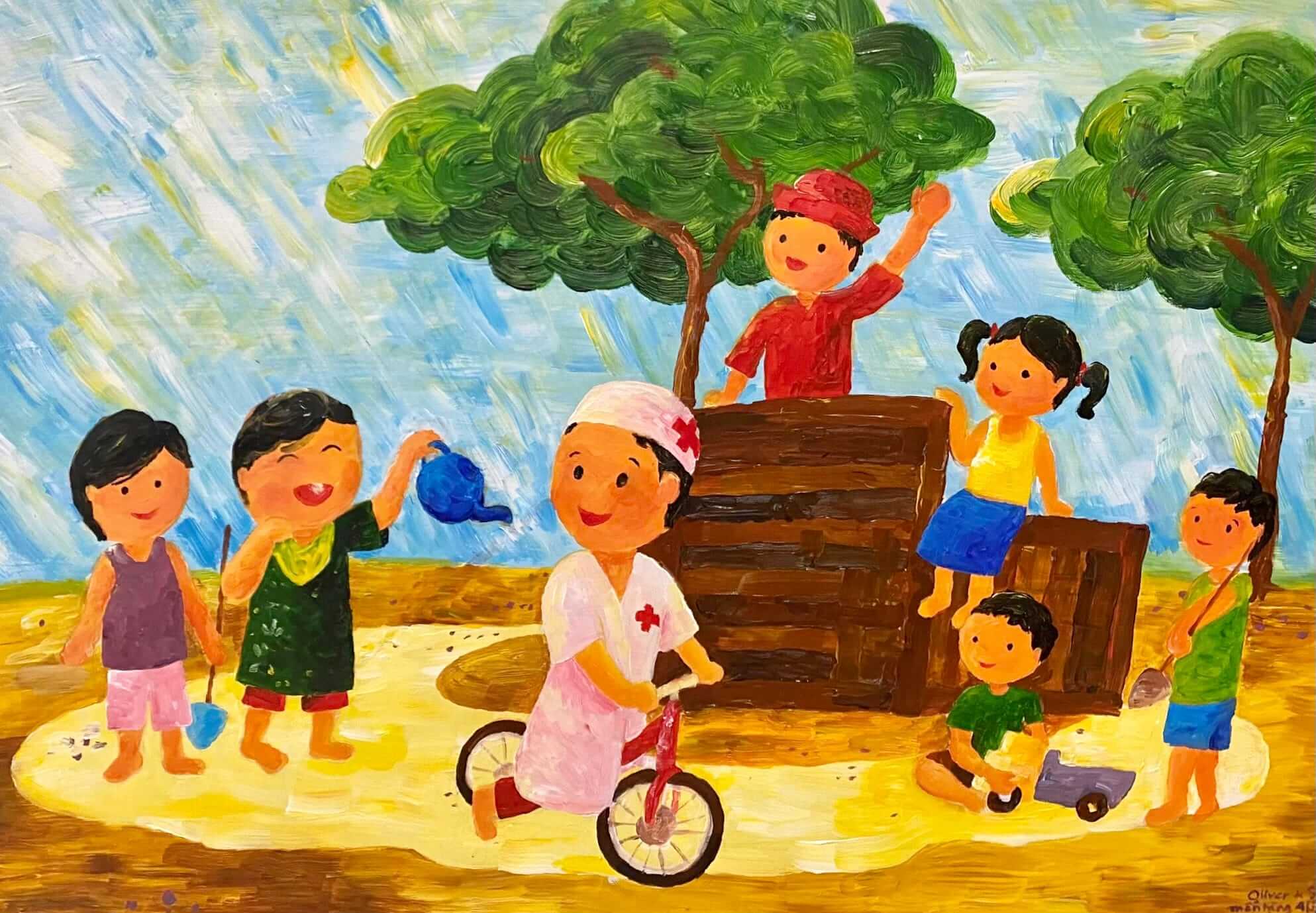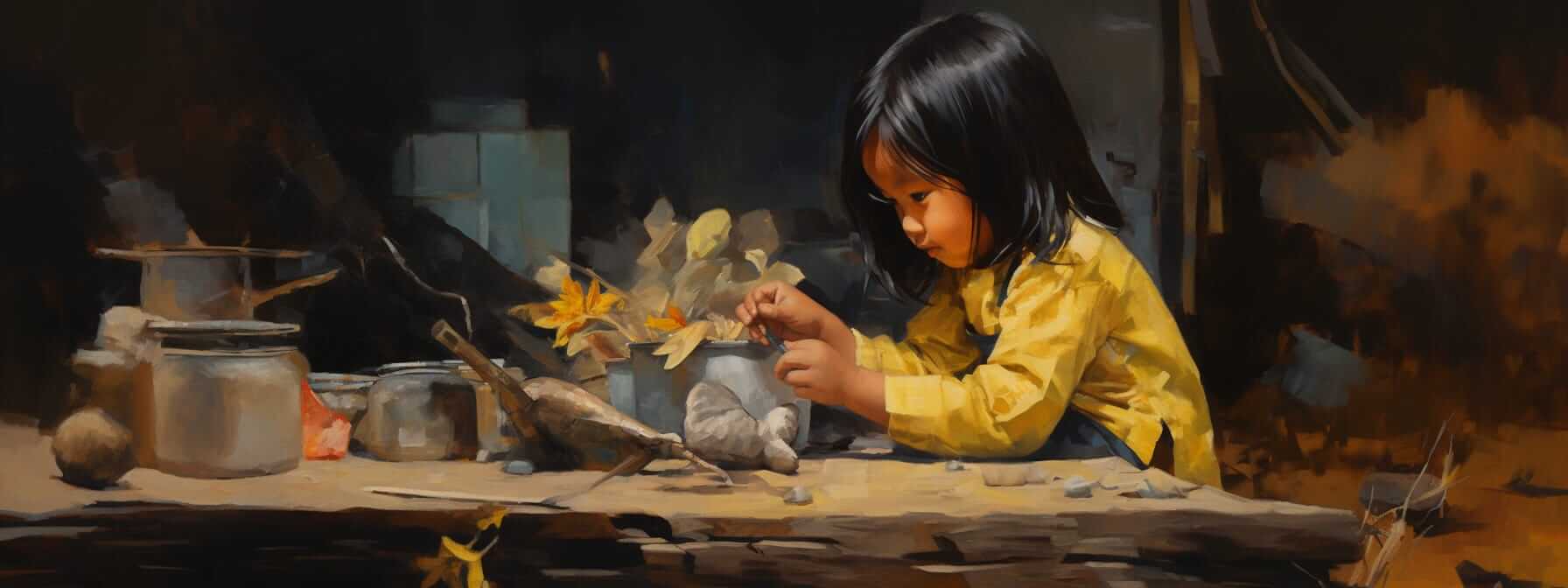Education in the Age of AI
Education is about helping individuals to be the best versions of ourselves
We all have different ceilings of how much we can grow to (nature), and we largely depend on education to climb as far as we can toward that ceiling (nurture).
The ceiling of how much one person can achieve is largely determined by their genetic making and nature. These are things like IQ, memory capacity, and other natural talents. Education is one of the growth levers for an individual to get to his or her best version. This growth lever is mostly about imparting skills and knowledge to a kid [1].

Painting of my kids’ school. No AI is involved.
Three Trends of Education
There are three trends in education that have largely come in succession:
-
Standardized Curriculum: standardization allows education to be widely available and cost-effective. It provides a common foundation for learning, enabling the masses to access quality education.
-
Personalized Learning: this trend customizes education based on individuals’ unique abilities and interests. Recognizing that everyone is different, personalized learning tailors the learning experience to meet each person’s needs.
-
Education via Co-Creation: akin to apprenticeships, this form of education does not only help learners discover their passions and talents but also allows them to apply their knowledge through hands-on projects and creations.
Knowledge and standardized curriculum will be free
The Internet and digitalization have made a lot of our books and materials readily available. For example, the Internet Archive (free library of books and other materials), arXiv (free repository of research papers), and MIT OCW (free online course materials) have opened up world knowledge to anyone with Internet access. Publishing has also become increasingly simpler and more easily distributed. Knowledge and information will become cheaper and cheaper, up to the point when they will become practically free.
A TikTok Education
With an abundance of knowledge, finding relevant information becomes crucial. Generative AIs like ChatGPT and Bard simplify the process, providing quick and accurate answers without the need for extensive searches. Think about how Google has long placed its own answer at the top of the search page (featured snippets). Language learners on Duolingo can have the questions and pace adapted to their progress every day. Another example is Coursera specialization which can offer different educational tracks depending on the learner’s aspirations and capabilities. But I think the future of education will be more like TikTok than Coursera, where learners will not even need to choose and follow up with a fixed set of lessons, but rather get served with ever-evolving knowledge from source that is the most interesting and relevant to them.
Learning will be more about co-creation
Co-creating, co-editing-based education brings education one step further where learners don’t just absorb knowledge but also put knowledge into action. Of course, the idea itself is not new as at its core, it’s similar to practical learning and project works. But AI can supercharge this mode of learning. Traditionally practical learning is still tied to a curriculum with the intention of trying out the nugget of knowledge that the learners just acquire. Practical learning is closer to a treadmill for honing technical skills rather than a creative process. But think about tools like StableAI and Midjourney, anyone with the right question and judgment can create arts way beyond their raw technical skills. This deviation from structured learning and more open-ended challenges pose new questions for educators on how to best help kids learn in this age of AI.
What should I teach my kids?
In a co-creating educational system, the most important skill is perhaps critical thinking. Some of the menial tasks can be done by an AI assistant, but I strongly believe humans would still be needed to make the decisions. The question is how to pick up critical thinking. In my opinion, one can only learn critical thinking and make it transferrable, e.g. to move from software design to rocket design, if one has become a master, an expert in certain verticals of knowledge. It is hard to teach a person how to think critically or to start from the first principles until she or he has experienced how those skills help them. Going deep into a topic can lead to moments of revelation when you can almost touch the axiom of a domain of knowledge while ignoring the rest as trivial details.

Struggles are part of education. Can we give our kids the right amount of struggles and nudges when many things would come easy with AI? Painting generated by Midjourney with the prompt “Van Gogh style oil painting of an Asian female toddler working on a sculpture —ar 8:3”
Unfortunately, this poses a chicken and egg problem. It can be hard to be an expert if you don’t experience the pain and the struggles of the journey. One thing I’m worried about is how to make my kid’s learning just hard enough so they can grow, without throwing them into deep water and scare them unnecessarily.
AI can have the dangers of churning out many code monkeys, parroting experts that can seeminlgy channel the outputs from AIs without knowing why and if the outputs are appropriate.
I think the best thing an educator, be it a parent or a teacher, can give to a kid is our time. Perhaps the best way we can equip ourselves to educate our kids is also to keep educating ourselves.
At the very least, most of us have gone through standardized education, but are we familiar with learning with an AI assistant, to co-create our learning? I think that will be the future of education, and to be with our kids in that future, we should do some of our learning that way as well.
That future of education will also mean many of the existing ways to make education equally accessible might soon become obsolete. When knowledge and information will soon be free, making them even “more free” will be less important and perhaps provide diminishing returns (similar to how free clothes are doing more harms than good) to each individual. The way forward is to make customizable and AI-based co-creating education accessible and fair. I will share my thought on how we can get there in another post.
[1] I must emphasize that I’m not saying education is the only part of nurturing. There are attitudes, mindsets, and people skills that are not necessarily teachable via formal education.